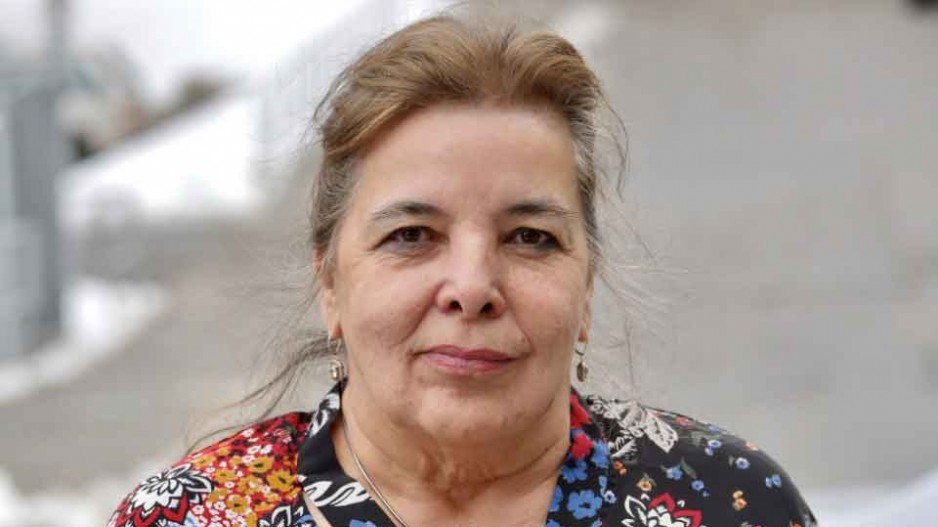The B.C. and Canadian governments plan to begin the process tomorrow of divesting power and transferring title to hereditary chiefs of the Wet'suwet'en First Nation, over the strenuous objections over some elected Wet'suwet'en chiefs.
At a virtual signing ceremony scheduled for today, May 14, provincial and federal ministers plan to sign an agreement that will begin the process of legally recognizing Wet'suwet'en rights and title and transferring governance powers to hereditary chiefs of the Wet’suwet’en First Nation.
Those who are most opposed to that plan are themselves Wet’suwet’en.
Four elected band council chiefs say they have not been consulted or had input on a memorandum of understanding signed between the hereditary chiefs and government ministers. They have gone so far as to call for the resignation of Carolyn Bennett, federal Crown-Indigenous Relations minister.
At the end of February, when provincial and federal ministers announced they had reached a memorandum of understanding with the hereditary chiefs on acknowledging Wet’suwet’en rights and title over a vast tract of land, Scott Fraser, B.C.’s minister of Indigenous relations and reconciliation, told Business in Vancouver that he expected the hereditary chiefs would involve elected band councils in their deliberations.
“My understanding, and my expectation, is that the community, including elected leaders, are all involved,” Fraser said.
That expectation was not met. In fact, some elected chiefs say they didn’t even get a look at what the hereditary chiefs had negotiated with senior governments until one week ago.
It was also expected that there would be some kind of community ratification by the five Wet'suwet'en clans.
But thanks to COVID-19 pandemic restrictions on large gatherings, at least some of those clan gatherings could not be held. In other words, the agreement to be signed tomorrow appears not to have been ratified by the Wet’suwet’en community at large.
The MOU states that the B.C. and Canadian governments “recognize that Wet’suwet’en rights and title are held by Wet’suwet’en houses under their system of governance.”
There are 13 Wet’suwet’en houses, although the MOU is signed by only 10 house chiefs.
The MOU offers “legal recognition that the Wet’swuwet’en houses are the indigenous governing body.” The MOU also requires “clarity on the Wet’suwet’en governance structures.”
But judging by how things have gone so far, it may be that the hereditary chiefs themselves will decide what those governance structures are, without the input of elected band councils.
Other First Nations in B.C., like the Tahltan and the Tsilhqot'in, have been able to resolve the conflict between elected and hereditary bodies though a hybrid central government.
When attempts were made by some female hereditary Wet'suwet'en chiefs to resolve governance issues, they were stripped of their titles by the male hereditary chiefs.
Tom Isaac, head of the aboriginal law group at Cassels, Brock and Blackwell LLP, said the agreement raises some fundamental questions about the lack of democratic representation.
“There’s obviously a challenge with the MOU because there’s no evidence to suggest that the entire community agrees with a non-elected government system,” he said.
The Delagamuukw Supreme Court decision, which the Wet’suwet’en were a party to, acknowledged the Wet'suwet’en’s traditional governance under the hereditary house system.
“The broader context here is: what is the role of democratic government in recognizing indigenous governments?” Isaac said.
“I’m not suggesting there can’t be forms of government that are not democratic. But what is our governments’ – provincial and federal – view on non-democratic forms of government? Do we have an issue with dealing with non-democratic forms of governance in ensuring that everybody has a voice?”
Certainly some elected Wet’suwet’en leaders do indeed have an issue with it. They have called on the provincial and federal governments not to ratify the agreement.
“I do find it surprising that the issue of the elected government leadership was not expressly dealt with in the MOU,” Isaac said.
“I don’t think there’s anything deeply offensive in saying that, in 2020, we insist on ensuring that we can check off the democratic principle box."
Given that elected Wet’suwet’en leaders are opposed to the agreement, Isaac thinks the agreement could be subject to a legal challenge.
At a press conference today, Premier John Horgan was asked if he was concerned that his government was setting a precedent in siding with non-elected First Nation leaders over elected ones.
“I absolutely respect the role and function of the elected leaders within the Wet’suwet’en territory,” he said.
“I don’t believe all of the six band councils have had something directly to say about the MOU. But what we do know is the Wet’suwet’en have to figure this out themselves. How they govern themselves is up to them.”
But in the Wet’suwet’en case, “them” appears to mean 10 unelected chiefs.




